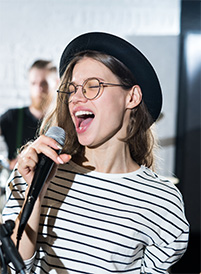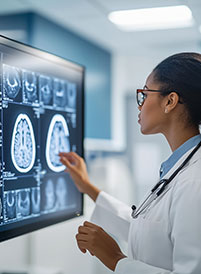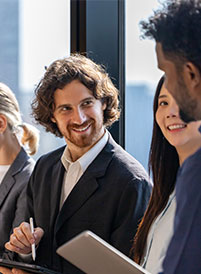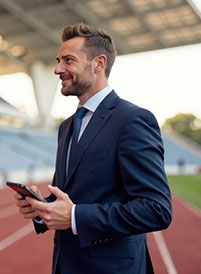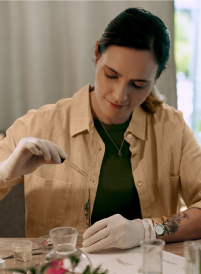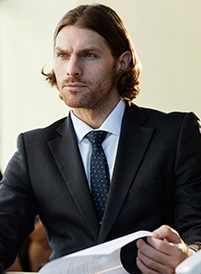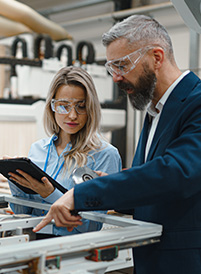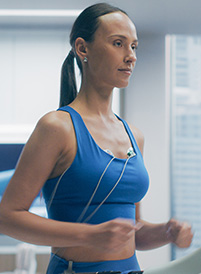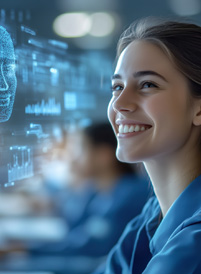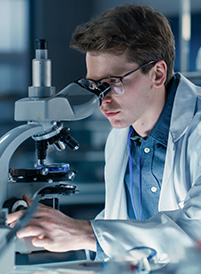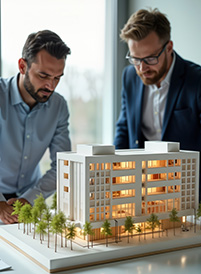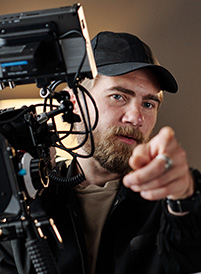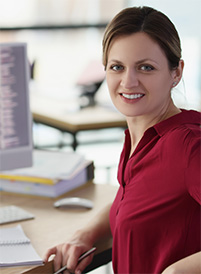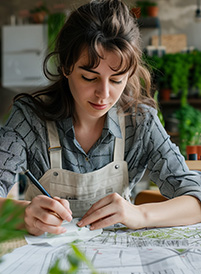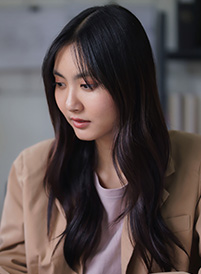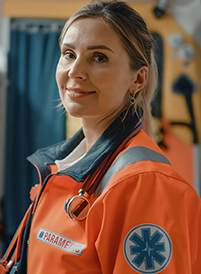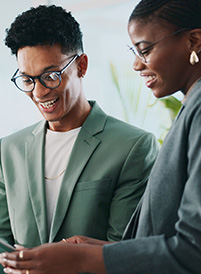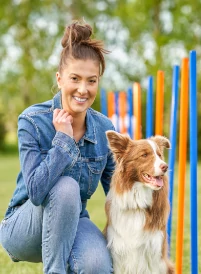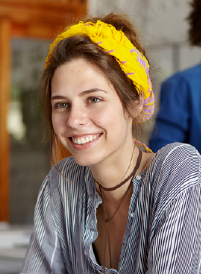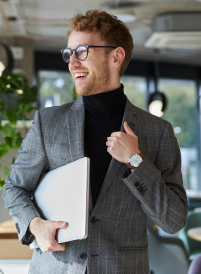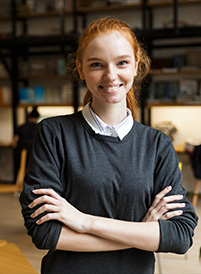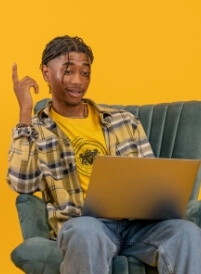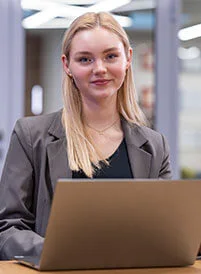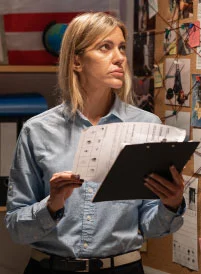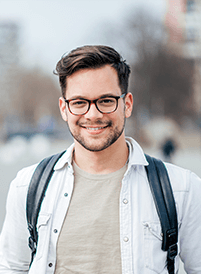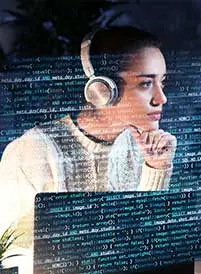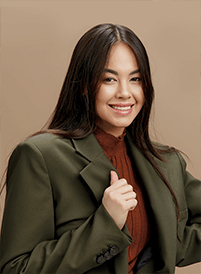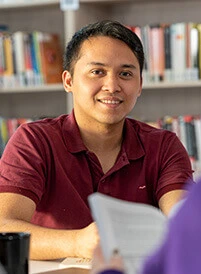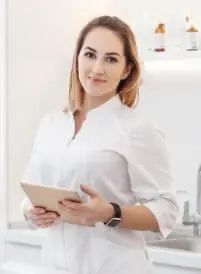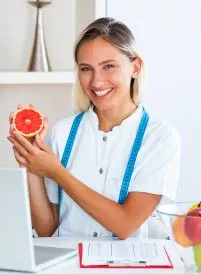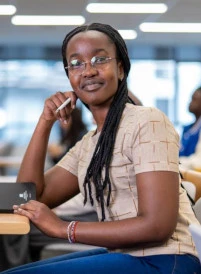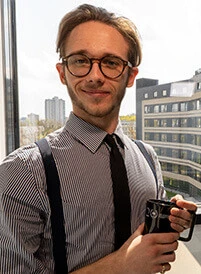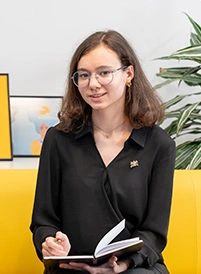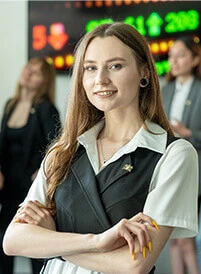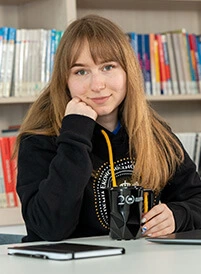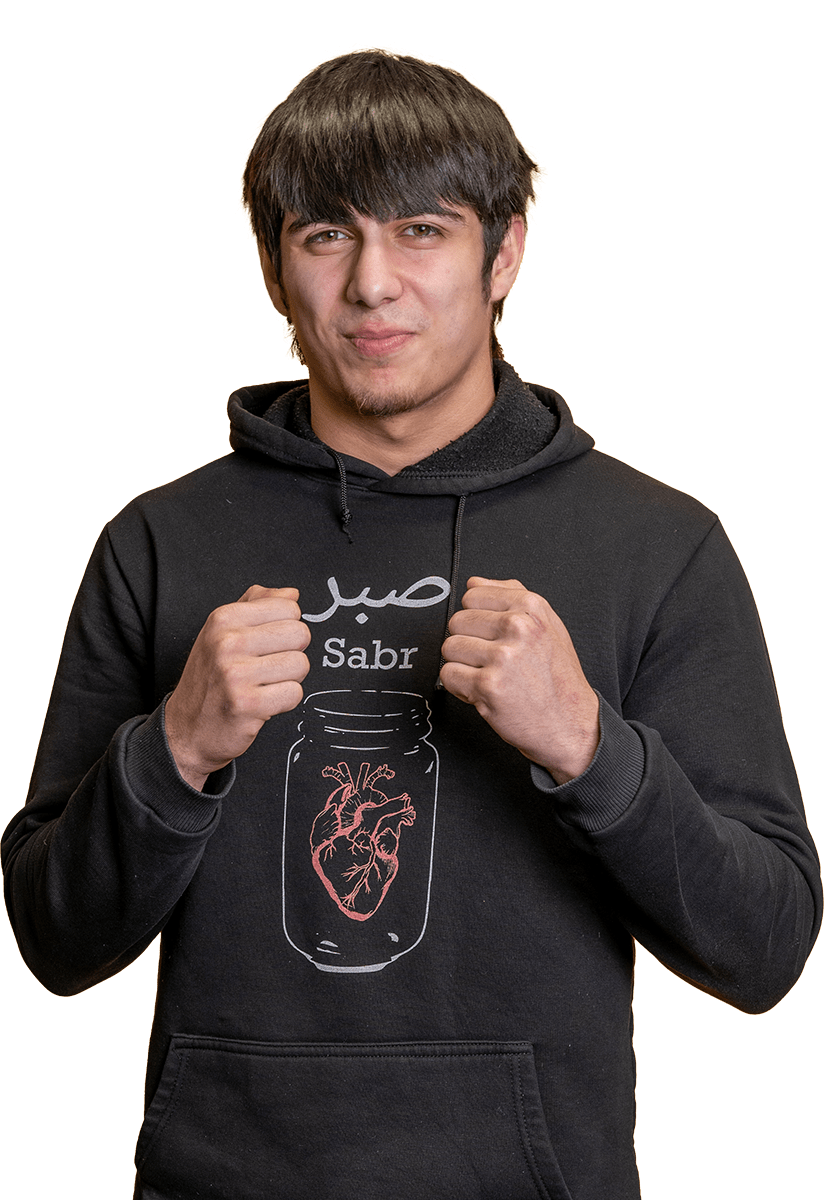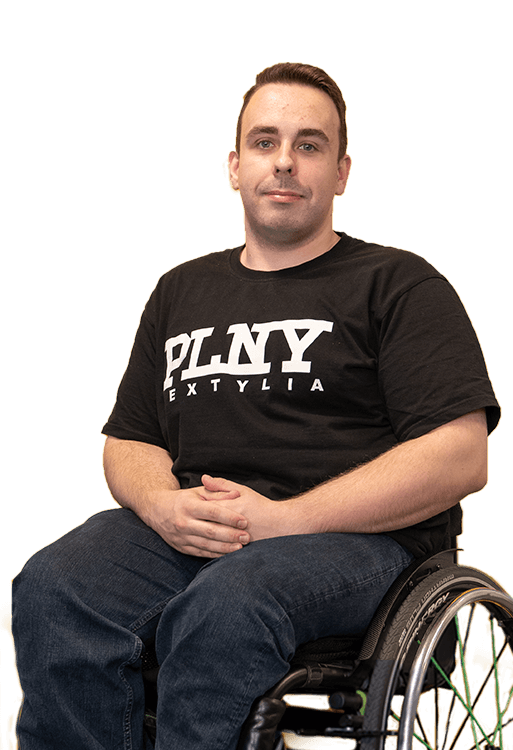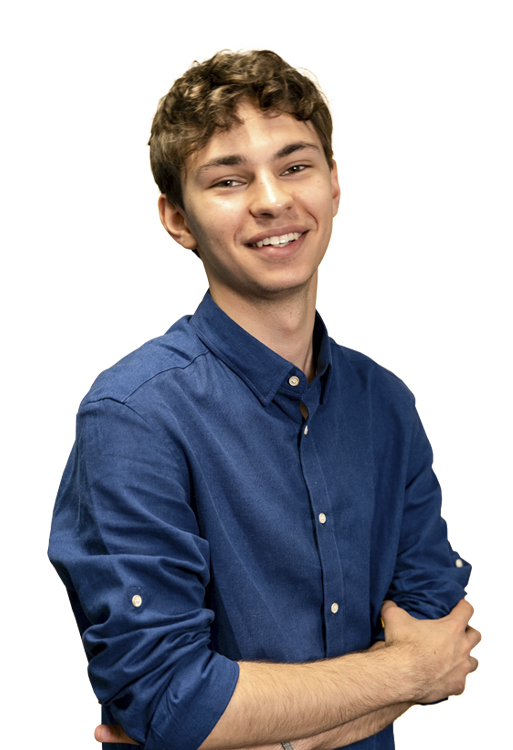Karolina Stobiecka
A second-year Psychology student at VIZJA University
Karolina is a hearing impaired volleyball player of the Polish national team who is currently studying Psychology at VIZJA University. She is the third generation of hearing impaired people in her family.
As she puts it, she lives in two worlds – the world of hearing and the world of non-hearing people.
She is a friendly, open-minded and talented girl who, at the age of 20, has already really achieved a lot. During our conversation she mentions barriers that are often difficult to overcome, but at the same time she points out that anything is possible!
Talking to her makes you wonder: maybe the extra challenges that some of us inherit in our genes allow us to become stronger and more organized people who discover the world in new ways.
Hi, Karolina, you said a very important thing – you live in two worlds at the same time. In fact, this is your reality, which we want to get to know.
Tell us first what your ordinary day looks like?
Similar to everyone’s. People with hearing impairment can do the same things as others, of course, hearing is a kind of challenge here though. I underwent cochlear implant surgery and wear a processor every day to hear, but that doesn’t mean I can hear 100%. I had rehabilitation and continue to work on my hearing.
You are studying Psychology at VIZJA University. What specialty have you chosen or will you choose? Why?
In my senior year of high school, I didn’t know yet what I wanted to study, but I really liked and still like psychological stuff, for example, Newsweek papers or TEDx lectures about emotions or mental health are very interesting to me. Therefore, I am very happy to have the opportunity to study at VIZJA University and I don’t regret this choice! I can choose a specialty not until the third year. I like the gym, so maybe I will choose sports psychology? Although that remains to be seen!
Did the university admissions process, as well as the very beginning of your studies, cause you any difficulties?
No, I contacted the university by e-mail, and also applied online. On the other hand, at the beginning of my studies I was stressed that if I would go to meet new people, e.g. at a restaurant, I wouldn’t be able to hear them. But fortunately, I’ve met people who understand what I have a problem with and look for alternatives, such as typing on my phone or speaking louder and a little slower. Of course, I also sometimes ask them to repeat what they have said.
How is your studies going for you in general? Do you think the university is prepared for people with hearing impairments?
I contact the Office for Persons with Disabilities (BON) here both by e-mail and in person. I have asked for an educational assistant, that is, a person who takes lecture notes for me. This is a big help, because sometimes difficult concepts come up during class and I don’t get along with them, then I can look at the notes.
If I got it right, the educational assistant attends the class and takes notes in real time?
Yes, she is always present in class as her duties include
Do you also stay in touch on other university matters?
The assistant mainly gives me notes, however, if I have any difficulties understanding the lectures, I can ask her about it. She can also help with organizational matters, so I can be sure that any information will be missed.
What issues do you contact BON for?
I contacted the BON if I needed support, such as the above-mentioned educational assistant. In addition, classes are often offered, for example with a physiotherapist, or various trainings for people with disabilities.
Do you have your own way of learning? Is it different from the way other students learn?
People who are hearing impaired are mostly visual learners. I, for example, like to make mind maps or try different methods to help me remember more easily. In my studies, I often use a tablet, where I can use different apps, such as Goodnotes to take notes or fiche from the Quizlet app. This is a big convenience because I don’t have to carry a lot of stuff with me to university. As for mind maps, I make them classically, mostly key words and add pictures to them, for example. With this method, information is more quickly memorized.
Do you use the sign language interpreters available on the university website?
I don’t use them because I have my educational assistant, which is quite enough for me. But I know many people with hearing impairments who use interpreters both online and in person.
What kind of support do you miss at the university?
I can’t see any difficulties on the part of the university. However, it happens that at exercises where students are talking to each other, I can’t understand something because they speak faster or quieter. Then it annoys me that I can’t hear them 100%.
How do you cope in such cases?
Anyway, I have to, I have no other choice. I can possibly ask the person who sits next to me, I can also talk to the lecturer that I have such difficulties and possibly ask the people who sit further away to repeat what they said.
What kind of prospects open up to you because of your studies at VIZJA University, and what practical opportunities do you see after graduation? What do you plan to do?
I believe that psychology offers many opportunities! I met cool people and lecturers at the university who have a passion for it. I really like Professor Magda Najda. We had Introduction to Psychology in the first year, and the professor gave great lectures that sparked a great interest in psychology in me. On the other hand, Professor Barbara Sypniewska (Organization and Management) was able to bring humor to boring theories and arouse interest in the subject among students.
I have not yet encountered such a lecturer who was arrogant or something like that, we are all at the university precisely to develop ourselves, not just to get some documents. The big advantage is that we can always go to the professors after lectures and ask questions if we didn’t get something, or send an e-mail.
I am also grateful that I have the opportunity to use the educational assistant I mentioned.
I know that you participate in sports activities at our university. What exact classes do you attend?
Yes, I play volleyball. Last year at VIZJA University I participated in academic tournaments, where I met great team members. We played matches against other universities. We had additional training sessions at the university, where we could prepare for the match.
I am also on the Polish national volleyball team for the hearing impaired. I participated in various tournaments, including international tournaments, such as the Olympic Games in Brazil and the European Championships, where we took fourth place, and now we are preparing for the World Championships in Japan.
I would like to underline that there are people who are hearing impaired who really do well in sports, but also in education, they even do a doctorate. Of course, there are barriers that are difficult to overcome, but anything is possible!
How did you end up on the Polish national team? Tell your story of playing volleyball please.
It started with the fact that my brother was on the Polish national team for the hearing impaired and saw potential in me. He suggested that I apply to coach the national team, and that’s how it started. What’s interesting is that during the Polish Championships or even at the Olympics, we are not allowed to use a hearing aid or a processor. If a referee sees someone using such a device during a match, they can get a penalty. That’s why at the camps the coach often makes sure we don’t use any hearing devices.
Do you like Warsaw? What would you recommend to people who have just arrived here?
Oh, there are cafes I love to go to! The Royal Baths are so beautiful! I could list so many interesting and wonderful places! But personally for me, a big plus in Warsaw is that I can meet people who are hearing impaired. In my hometown, Czestochowa, there are fewer of them. In contrast, the capital is such a place where various cultural events are often organized for deaf people as well.
How do you find such people and events?
I have been hearing impaired since I was born, and I met a lot of people on my way who are also deaf. I still keep in touch with them to this day. In addition, there are various organizations and associations, such as STPJM (Association of Polish Sign Language Interpreters) and the Foundation for Barrier-free Culture. There are sign language webinars, trainings, camps, etc. I find such events, of course, on the Internet or on the recommendation of my friends.
***
We would like to thank Karolina for her time and wish her good luck and only victories in the next championships, as well as inspiration for new achievements on a daily basis, because, to quote our interviewee, anything is possible!
Alona Trokhymchuk,
VIZJA University in Warsaw
Other stories from our students
Patience and hard work: our student is second at the Polish Sambo Championship
Our sportsman is a participant of the Paralympic Games 2024 in Pariss
Poland is a motivator and driving force for me
Check our offers
- Animal behavior and psychology
- Architecture
- Art Education
- Art of Politics
- Chillout Studies
- Cognitive Science and Artificial Intelligence
- Computer Science (Informatics)
- Correctional Rehabilitation
- Cosmetic Technology and Formulation Design
- Cosmetology
- Criminology and Forensic Science
- Cybersecurity
- Dietetics
- Economics
- Electroradiology
- Emergency Medical Services (EMS)
- Energy business
- English Philology
- Fashion Design
- Film and Television Production Management
- Finance and Accounting
- Financial Technology (FinTech)
- German Philology
- Interior Design Architecture
- International Relations
- Italian Studies
- Landscape Architecture
- Logistics
- Luxury Business
- Management
- Marketing
- Medical analytics
- New Media and Public Relations
- Urban planning and development
- Pharmacy
- Physiotherapy
- Political Science
- Production Engineering and Management
- Psychology
- Public Health
- Real Estate and Investments
- Social Media and Digital Marketing
- Spanish Philology
- Sports Business
- Sports Performance Diagnostics
- Sustainability Analytics and Audit
- Tourism and Recreation


